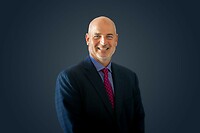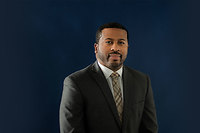Foreclosure actions and the failure to comply with related regulations have generally been issues governed by state law. However, this changed in a recent Sixth Circuit ruling, Glazer v. Chase Home Finance LLC, No. 10-3416 (6th Cir. 2013), which held that mortgage foreclosure is “debt collection” under the Fair Debt Collection Practices Act (“FDCPA”). Thus, all persons who meet the definition of a “debt collector” under the FDCPA must comply with the FDCPA’s stringent standards when participating in mortgage foreclosures.
In Glazer, the Plaintiff, Lawrence Glazer, inherited property that had an outstanding mortgage serviced by Chase. Mr. Glazer fell behind on the mortgage payments, and Chase hired a law firm to initiate foreclosure proceedings in state court. When the law firm moved to foreclose, it represented that Chase was the loan’s owner. Notably, although Chase was the loan’s servicer, it was not the original owner of the debt. Fannie Mae actually owned the loan. Chase was simply assigned as the servicer by the loan originator. Mr. Glazer notified the law firm that he disputed the debt and requested verification. In response, the law firm refused to verify the amount of the debt or its true owner.
In the midst of the foreclosure proceedings, Mr. Glazer filed a separate suit in Federal Court, alleging that Chase and the law firm violated the FDCPA when they falsely stated in the foreclosure complaint that Chase “owned” the note, improperly scheduled a foreclosure sale, and refused to verify the debt upon request. The District Court ruled that Mr. Glazer’s FDCPA claims against the law firm failed because the law firm’s activities in bringing a mortgage foreclosure action on behalf of Chase were not “debt collection.” This ruling was in accord with other District Courts that view mortgage foreclosures as enforcements of a security interest, which fell outside the FDCPA’s parameters.
On appeal, the Sixth Circuit analyzed the issue of whether mortgage foreclosure is “debt collection” under the FDCPA. The Sixth Circuit began with the premise that to be liable under the FDCPA’s substantive provisions, a debt collector’s conduct must have been “in connection with the collection of any debt”. The FDCPA defines “debt” as “any obligation or alleged obligation of a consumer to pay money arising out of a transaction in which the money, property, insurance, or services that are the subject of the transaction are primarily personal, family or household purposes.” Therefore, contrary to the District Court, the Sixth Circuit reasoned that a “debt” does not depend on whether it is secured, but rather the purpose for which it was incurred.
The FDCPA defines “debt collector” as a person who regularly collects or attempts to collect consumer debts. The Sixth Circuit interpreted this definition to include any action in which the sole purpose is to collect payment of a debt. As such, “every mortgage foreclosure, judicial or otherwise, is undertaken for the very purpose of obtaining payment on the underlying debt....” Following this logic, the Sixth Circuit reasoned that nothing prevents mortgage foreclosure activity from constituting “debt collection” under the FDCPA. Thus, a lawyer satisfies the definition of a “debt collector” if his principal business purpose is mortgage foreclosure or if he “regularly” performs this function. Consequently, the Sixth Circuit overruled the District Court and found that that the law firm had engaged in “debt collection” under the FDCPA.
Although the Sixth Circuit is the only circuit to specifically hold that mortgage foreclosures are debt collections under the FDCPA, other circuits, such as the Second, Third, Fourth and Eleventh have made similar rulings regarding FDCPA compliance. As a result, debt collectors and law firms who regularly handle mortgage foreclosure actions must be aware of the applicable FDCPA regulations and requirements or they may be exposed to liability under the FDCPA.
If you have any questions regarding finance and creditor rights and liabilities or would like a full copy of the court’s opinion, please feel free to call any member of our Financial Institution and Creditor Rights Practice Group.


